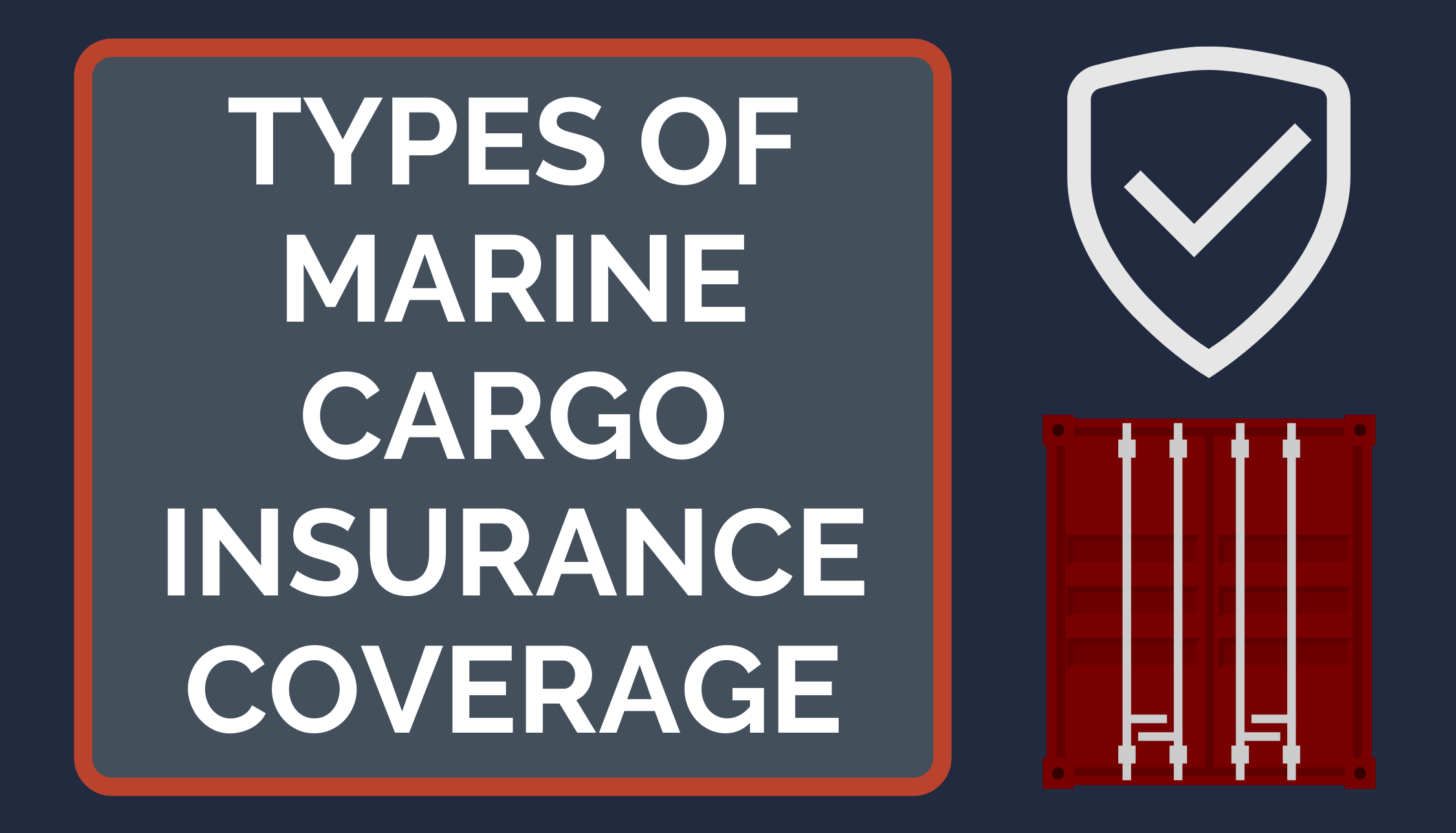Types of Marine Cargo Insurance Coverage

The two main types of cargo insurance coverage an importer can purchase to protect their goods while in transit are All-Risk and Named Perils. If an importer does not purchase cargo insurance, they are only covered by carrier limit of liability.
All-Risk coverage (Institute Cargo Clause A)
All-risk policies provide the broadest and most comprehensive coverage available. Rather than only covering certain situations, all-risk coverage will cover all physical loss or damage due to a fortuity which is chance or happenstance unless the cause of loss or damage is expressly excluded from the policy. All Risk coverage is an Institute Cargo Clause A. Trade Risk Guaranty aims to offer all-risk terms since it provides the most comprehensive coverage.
Benefits of an annual all-risk cargo insurance policy include:
- Asset protection
- General Average guarantee
- Control over claims
- Customized coverage & pricing
- Local representation
- Automatic & continuous coverage
- It’s cost-effective
An all-risk policy will list any exclusions that are not covered, but coverage for certain exclusions can sometimes be added as an additional clause. The following are some standard exclusions for All-Risk Marine Insurance coverage:
- Inherent Vice: This refers to the deterioration of physical objects because of the fundamental instability of the components of which they are made, as opposed to deterioration caused by external forces. For example, fruits and chemicals naturally deteriorate without the influence of detrimental outside forces.
- Negligence: Negligence is the failure to use reasonable care resulting in damage or injury to the imported commodities, for example, shipping time-sensitive goods into a known congested port.
- WSRCC: This stands for ‘War, strikes, riots, and civil commotions.’ An ordinary marine insurance policy does not cover loss due to these conditions but is almost always added back to the policy by insurers
- Loss of use/ Market: If the cargo is damaged and this results in the loss of profits from those goods, insurance will only cover the cost of the goods and not the potential profits. If the importer ordered goods for a specific event or customer and delay causes the goods to no longer be wanted, they can’t claim the lost sale.
- Failure to pay or collect: If the client fails to pay during any point in the supply chain resulting in any loss of goods, the marine insurance will not cover the loss.
- Loss over policy limit: If a loss exceeds the maximum per conveyance limit, it will not be covered. Marine insurance policies will only cover up to the limit. An insufficient limit can also lead to a penalty on the claim.
- Policyholder Misconduct: This refers to any loss, damage, or expense attributable to the willful misconduct of the insured. For example, the importer could purposefully ship goods set to expire before arrival for the purpose of seeking a claim.
- Wear and Tear: Ordinary leakage, ordinary loss in weight or volume, or ordinary wear and tear are generally excluded from all-risk policies.
- Insufficient Packaging: This refers to any loss, damage, or expense caused by insufficient or unsuitable packing only when packed by the insured.
- Delay: Loss, damage, or expense proximately caused by delay is generally excluded from an all-risk policy.
- Carrier Insolvency: This refers to loss, damage, or expense arising from insolvency or financial default of the owners, managers, charterers, or operators of the vessel. This means that the carrier is facing a financial shortage.
- Weapons of Mass Destruction: This refers to loss, damage, or expense arising from the use of any weapon of war employing atomic or nuclear fission and/or fusion or other like reaction or radioactive force or matter.
Named Perils Coverage (Institute Cargo Clauses B & C)
Named perils coverage refers to Institute Cargo Clauses B and C, which are more restrictive types of marine cargo insurance. This includes various degrees of narrower coverage that will only cover the loss if it is caused by specific, named perils such as sinking, stranding, or burning. Any peril not named in these policy types is not covered by the insurance.
Typically, named perils coverage covers the following types of loss:
- Burning
- Sinking
- Fire
- Stranding
- Collisions
Since all policies cover sinking, asking an insurer if named perils coverage will cover if the ship sinks is not a good gauge for whether a policy is a good fit. However, theft, which is covered under an All-Risk policy, is not covered by named perils cargo clauses B or C policy. In order to have that covered, importers would need to add that as an enhancement on a named perils policy.
Additional perils are covered under the Inchmaree clause, which was created when the need for coverage for non-sea-related perils was recognized. The Inchmaree clause provides coverage for loss or damage due to the bursting of boilers; the breakage of shafts; any latent defect in the machinery, hull or appurtenances; faults or errors in the navigation or management of the vessel by the master, mariners, mates, engineers, and pilots.
Choosing the Right Coverage for Your Business
Marine cargo insurance policies can be tailored to meet the needs of any company that imports goods. While all companies have different needs, the best coverage with the most advantages is generally an all-risk cargo insurance policy. For a fraction of annual business costs, you can have peace of mind because your maximum financial loss is limited to your deductible while your goods are in transit.
If you are interested in learning more about a marine cargo insurance policy with Trade Risk Guaranty, contact our team today.

